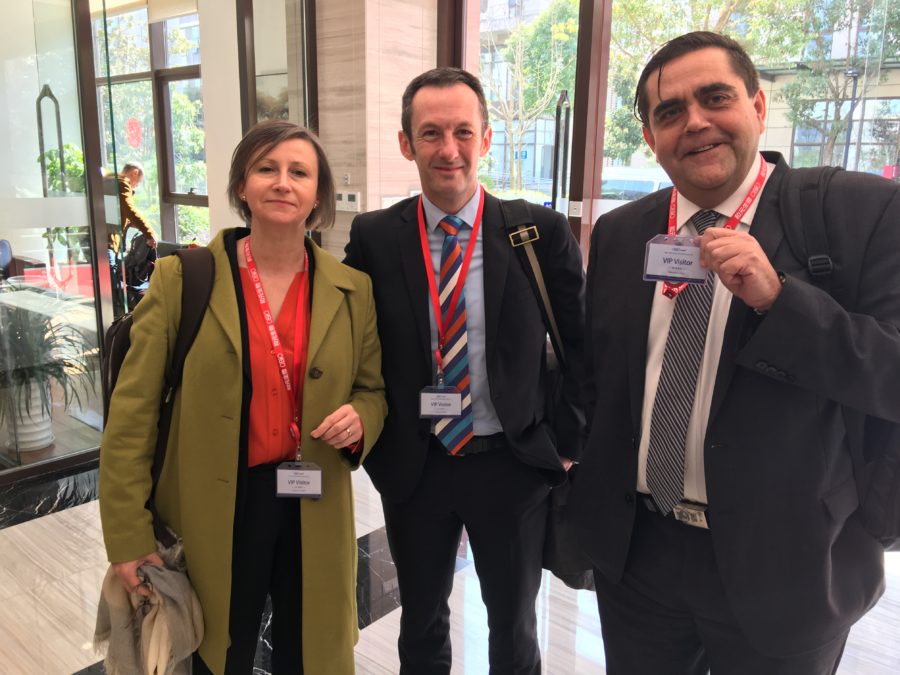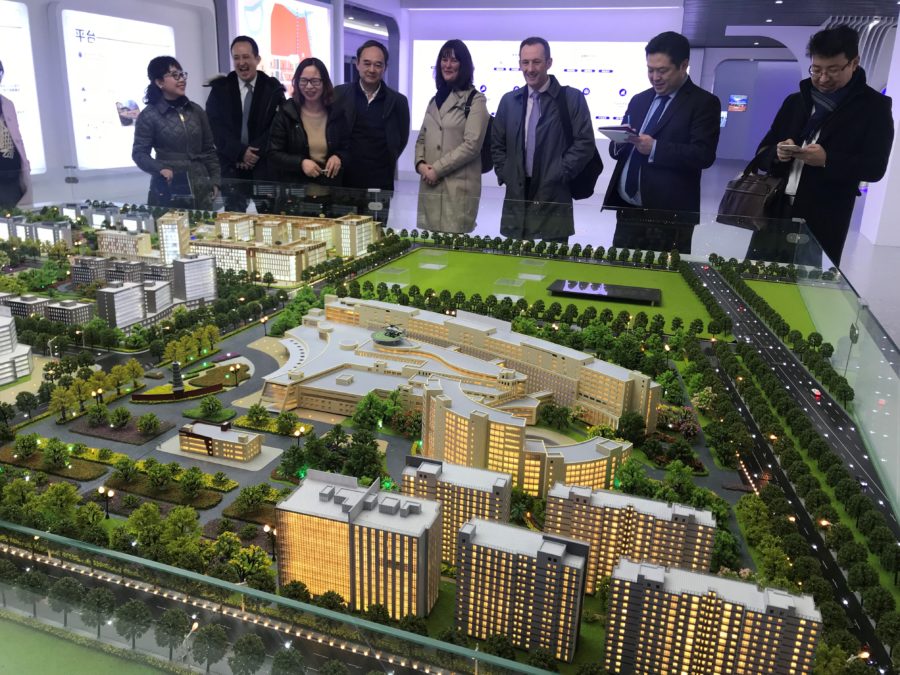4th June 2018 Shanghai
The story of the Cell and Gene Therapy Catapult in China

The Cell and Gene Therapy (CGT) Catapult is a unique centre of excellence in innovation aiming to anchor cell and gene therapy manufacturing in the UK, by enabling companies to develop from small-scale to commercial scale CGT manufacturing systems and supply chain. The CGT Catapult’s vision is for the UK to be a global leader in the development, delivery and commercialisation of cell and gene therapy; where businesses can start, grow and confidently develop advanced therapies, delivering them to patients rapidly, efficiently and effectively.
The CGT Catapult is part of the Catapult Network, which is supported by Innovate UK and the UK government, and aims to transform the UK’s capability for innovation in specific areas and help drive future economic growth. Our specific mission is to drive the growth of the cell and gene industry by helping organisations across the world translate early stage research into commercially viable and investable therapies. This allows us to act as a neutral voice for the cell and gene therapy industry, working with companies, universities and government stakeholders to benefit the industry in the UK.
Cell and gene therapies have the potential to be a game-changer in how we treat diseases. By modifying and adapting the cells or genes of a patient, such treatments can strengthen the body’s ability to identify and fight diseases, such as cancer. The human body is delicate and complex and developing treatments that change our cells or genes is expensive and challenging. CGT Catapult aims to de-risk investment and support new products in this fledgling industry by providing expert support and state-of-the-art technology across the cell and gene therapy research, development and manufacturing timeline.
In an emerging field of science, international collaboration is crucial to progress. Humanity’s opportunity to develop new treatments are much improved if we collaborate across borders and share expertise and breakthroughs. This is why the CGT Catapult has a global strategy encompassing partnerships and agreements with organisations, business forums and cell and gene therapy societies across the US, Japan, Australia and beyond.
China is increasingly a global focus point for new medicines development. China will soon overtake the US to become the largest investor in scientific research and development in the world. It already has the largest population of any country and therefore no shortage of patients willing to participate in clinical trials. Scientific breakthroughs are occurring and advanced treatments are already being developed in China.
I joined the Catapult’s first trip to China in 2017 and in March of this year, four of my colleagues returned, spending a week exploring Shanghai, Wuxi, Suzhou and Beijing. Our impression of China has been immensely positive. The quality of the scientific research is very high and we have met scientists and companies willing to share their data and who are open to collaboration. We’ve also been overwhelmed by the scale of China – the size of the cities, the hospitals and even the generosity from our hosts!
In June, I will return as one of over 30 UK organisations participating in the UK-China Oncology Congress. This is the largest delegation of cancer specialists from the UK and will be led by Baroness Fairhead from the Department of International Trade. We will be meeting with local experts, hospitals, researchers and businesses. China’s vast population and ageing society mean there is a huge cancer burden. We believe UK collaboration in China can help raise standards and build research and business opportunities. More information on the Congress is available here.
The support of the British Government in China has been vital in building bridges between our work at the CGT Catapult and the innovative cell and gene organisations in China. The Science and Innovation Network have provided invaluable support and advice in planning our trips to China. They have also worked with colleagues at the Department of International Trade to connect us with potential commercial opportunities.
We have used our visits to build links with some of the most advanced companies operating in the country and have been able to share best practice on how to regulate this emerging area of technology. As new types of treatments emerge, new methods are needed to ensure the treatments are safe, ethical and the development process remains effective without being overly burdensome. Clinical trials are expensive and time-consuming and if regulations are too complicated this could set back the development of new treatments by years, or worse, prevent such products being developed at all.

In China, we have met with the Health Ministry, regional Food and Drug Administrations and with industry bodies. We have held very encouraging discussions and recognise much common ground in the challenge of bringing new cell and gene therapy treatments to the patient. Although the regulatory environment in China is different, authorities recognise the benefit of developing accelerated pathways for treatments. We hope to continue building these links and develop a mutually beneficial dialogue with the Chinese authorities.
Over half of the CGT Catapult’s staff are scientists and we work extensively with companies to improve their processes, solve industry problems and develop new products. Following our 2017 visit, we established our first commercial partnership in China, with Aokai Biomedical. In partnership with Aokai and a UK company, Oxford MEStar, we won a joint grant from Innovate UK and the Jiangsu government under the Jiangsu-UK Industrial Challenge Programme.
Under this grant, research and development work has begun to produce an advanced manufacturing system for T-cell therapies. Currently much of the manufacturing for T-cell therapies is done manually and even with highly skilled operators, the final quality can be variable. By automating part of the manufacturing process, this project will reduce the cost of manufacture and improve the consistency of the product. This machinery, once developed, aims to deliver a benefit to the wider cell and gene therapy industry.
In telling this story, I hope I have shared some of the opportunities in China and some of the opportunities to participate in world-leading research in an increasingly sophisticated environment. I look forward to comparing notes with the other UK participants in the Oncology Congress.
